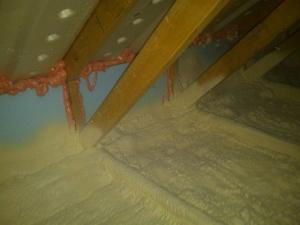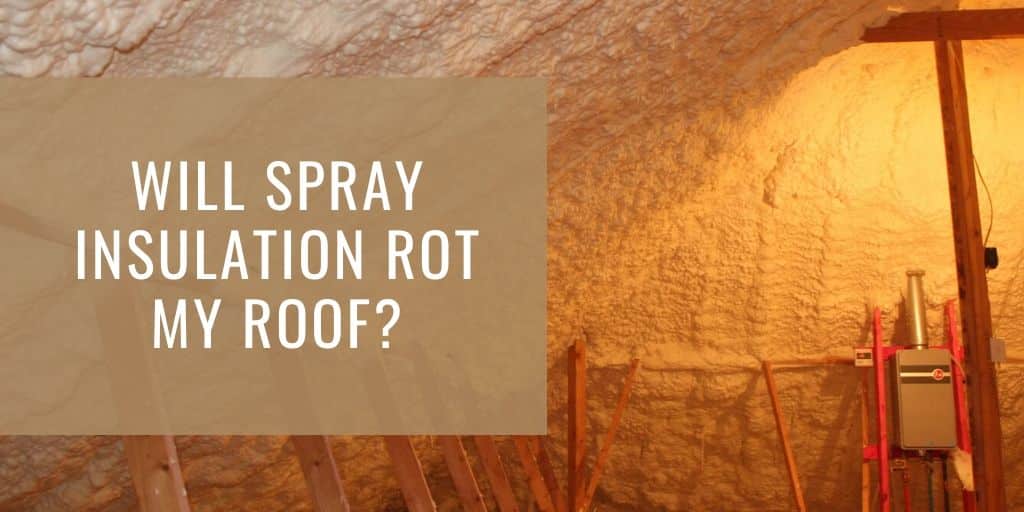Closed cell spray foam has a perm rating of approximately 1 5 to 3 0 per 25 mm 1 in and an r value of approximately 1 05 per 25 mm 6 0 per 1 in.
Prepping soffits for spray foam in attic.
Remove any existing insulation debris and dust and prepare the attic floor for spray foam insulation.
Don t let your attic suck power attic ventilators are a.
When you contract with kc spray foam for your spray on insulation needs this step is included in our price quote.
In a proper spray foam job a contractor doesn t just spray foam all over the top of your attic and go home.
The prep work ahead of a sprayed insulation job is an important step.
It s how we protect the job site from overspray.
An attic that s brought inside the building enclosure is a beautiful thing.
Normally in occupied areas all spray foam must be covered by a 15 minute thermal barrier such as thick drywall per code requirements in irc section 316 4 and ibc section 2603 4.
We come in and cover all windows doors.
Gable vents and soffits are the big culprits here.
They also need to seal off areas of air leakage to the outdoors.
So are other gaps and cracks that let in outdoor air.
It s also how we ensure we leave the site better than when we started a job.
Sealed attics should not have any type of attic ventilation connecting it to the outside.
And you avoid wood rot and mold.
Hot air doesn t get formed.
Well as any good building scientist will tell you that depends.
Provide additional air sealing measures such as sealants or rigid foam blocking of large holes as needed.
Here in the southeastern us open cell is most often the spray foam of choice.
Verify that all attic floor penetrations can be adequately sealed with spray foam insulation.
The photo above shows the scar from a power attic ventilator installed in a spray foam attic but i ve heard of several cases where roofers installed or tried to ridge vents.
Install ventilation baffles essentially plastic or foam vents into the eaves by pulling the existing insulation away from the roof positioning the new vent chute so the bottom extends six inches into the overhang and stapling it into place.
This is most often done with spray polyurethane foam spf insulation either open cell or closed cell.
The eaves don t get blocked.
Otherwise humidity will quickly creep into your attic.










